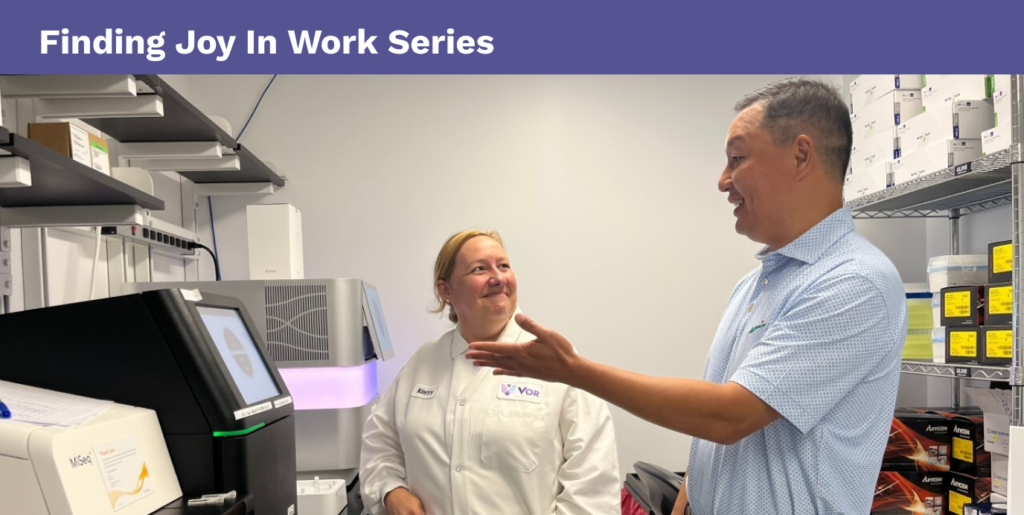“I’m running away!” My five-year-old’s voice was firm, but his anger was surprising – I had never seen him this upset. His mom had thrown away a broken toy, and instead of throwing a tantrum, he grabbed his backpack and began stuffing his favorite cereal into it. My wife, calm as ever, asked, “Where are you going?” He paused, not only because he was thinking through the consequences, but also because his backpack was clearly too small to fit the oversized cereal box. He sighed and unpacked his bag, quietly saying, “I changed my mind.”
It was a small moment, but it illustrates something we all experience: getting so fixated on what’s immediately in front of us that we lose sight of the bigger picture. In work, just like in life, it’s easy to focus on the immediate, neglecting the broader context that could change our approach. This article explores how we can step back and see the entire puzzle, not just one piece.
Our work environment is naturally siloed. Our tasks have a lot of common traits. We have assigned colleagues, direct reports, departments, and functions. Our day-to-day interactions tend to be with similar people. As such, we will always tend to view things through a lens colored by our siloed perspective. That means we often need to deliberately try to understand the bigger perspective. I suggest three ways to do this.
Look Beyond Your Department
In a small organization of fewer than ten people, it’s easy to know everyone and understand how their work fits into the broader goals. But as companies grow, we lose that visibility. It’s natural to think, If I don’t know them, their role must not be crucial. This mindset can lead to siloed thinking, internal politics, and a lack of collaboration.
At Vor Bio, we have our Random Coffee initiative which is designed to address this. Voracians are randomly matched to have coffee (or another meal or encounter) with someone outside of their department who they don’t really know. While that helps promote our core value of Fellowship, it also tries to address this department-centric thinking. Even if your workplace doesn’t have such programs, try initiating a conversation with someone in a different area. Try understanding a topic or issue from the perspective of another department and be deliberately open-minded. You’ll gain insights and broaden your view.
Look Beyond your Company/Institution
Another aspect of understanding the bigger picture is overcoming the “not invented here” syndrome, a decision-making error where we tend to value our own ideas above those conceived by people outside of our group. At Vor Bio, we emphasize humility, recognizing that people outside our company—whether in academia, industry, or even among competitors—are bright, hardworking, and often doing innovative work. We engage with the broader community through guest visits, seminars, competitive intelligence, and networking. In biotech, we should damp down a sense of competition, and instead recognize we are all working towards the common good of health and humanity.
You should be networking with people in similar positions in other companies. Take advantage of conferences and meetings, and if this is not possible, then use LinkedIn and other online forums to meet these people. An important question we can discretely ask them is: “What does good look like in this role?”
In addition, engage with people who disagree with you, and ask open-ended questions about why they have that view. Maybe you’ll walk away affirming your position, or more likely you will find weaknesses about your own view and better understand the nuances.
Ask the Hard Questions from your Immediate Supervisor
Tackling challenges early, whether big or small, helps prevent future issues from festering. But having difficult conversations with your supervisor can feel awkward. Still, these moments are investments in your development and workplace relationships.
Start by asking the right questions: What does excellence look like in my role? What are the specific criteria for promotion? How am I progressing in my key development areas?
If your manager isn’t forthcoming with feedback, guide them—ask specific questions in writing so they can prepare. If necessary, involve HR or another manager to support these conversations. It’s better to know where you stand than to operate in uncertainty.
When I took the CEO role at Vor, I immediately asked to get a corporate coach. As a first-time CEO I knew I was going to make mistakes, but I also wanted that vital channel to learn from my mistakes and listen to folk around me (particularly my board and my leadership team) and translate this feedback into tangible plans to make me a better CEO. Feedback is both ad hoc and more formalized, the latter sometimes feeling quite brutal, but I am comforted knowing that these important people are giving feedback trying to make me a better person. It’s awesome that my coach has been there for me over the past five years and has seen how I have matured and adapted to my journey.
In summary, a significant portion of work-related anxiety stems from not understanding the broader context—how your work impacts others, how well you’re performing, or how your role fits into the larger strategy. By taking the time to see the bigger picture, you can bring more clarity and joy into your work.
Stay tuned for the next article in this series, where we’ll explore why comfort can be the enemy of progress—and how to push beyond it.
